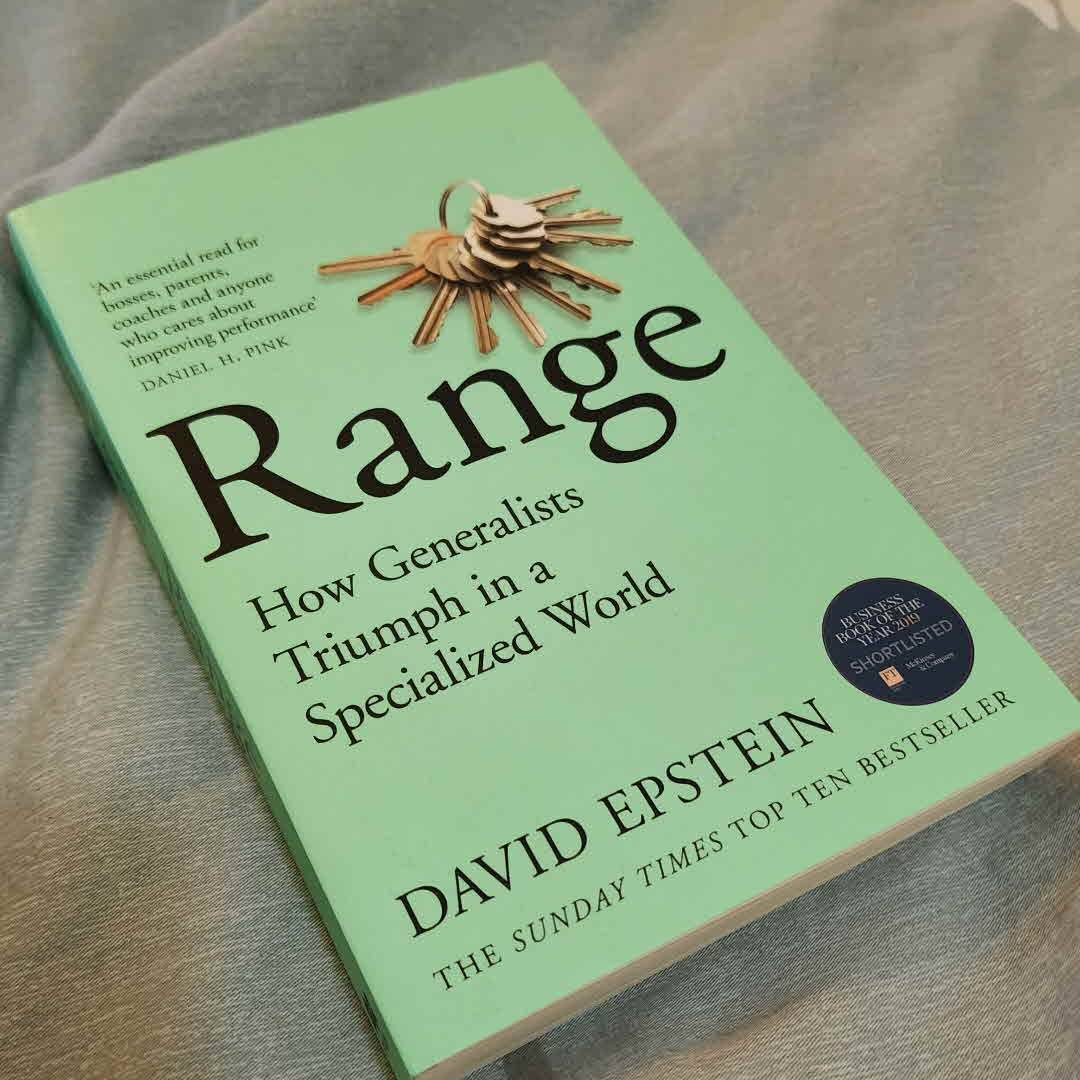
An entertaining read on the subject of how generalists may be the glue that helps stitch together problems that may stump specialists. There was a bit of repetition but the author managed to look at the subject from a few angles.

An entertaining read on the subject of how generalists may be the glue that helps stitch together problems that may stump specialists. There was a bit of repetition but the author managed to look at the subject from a few angles.
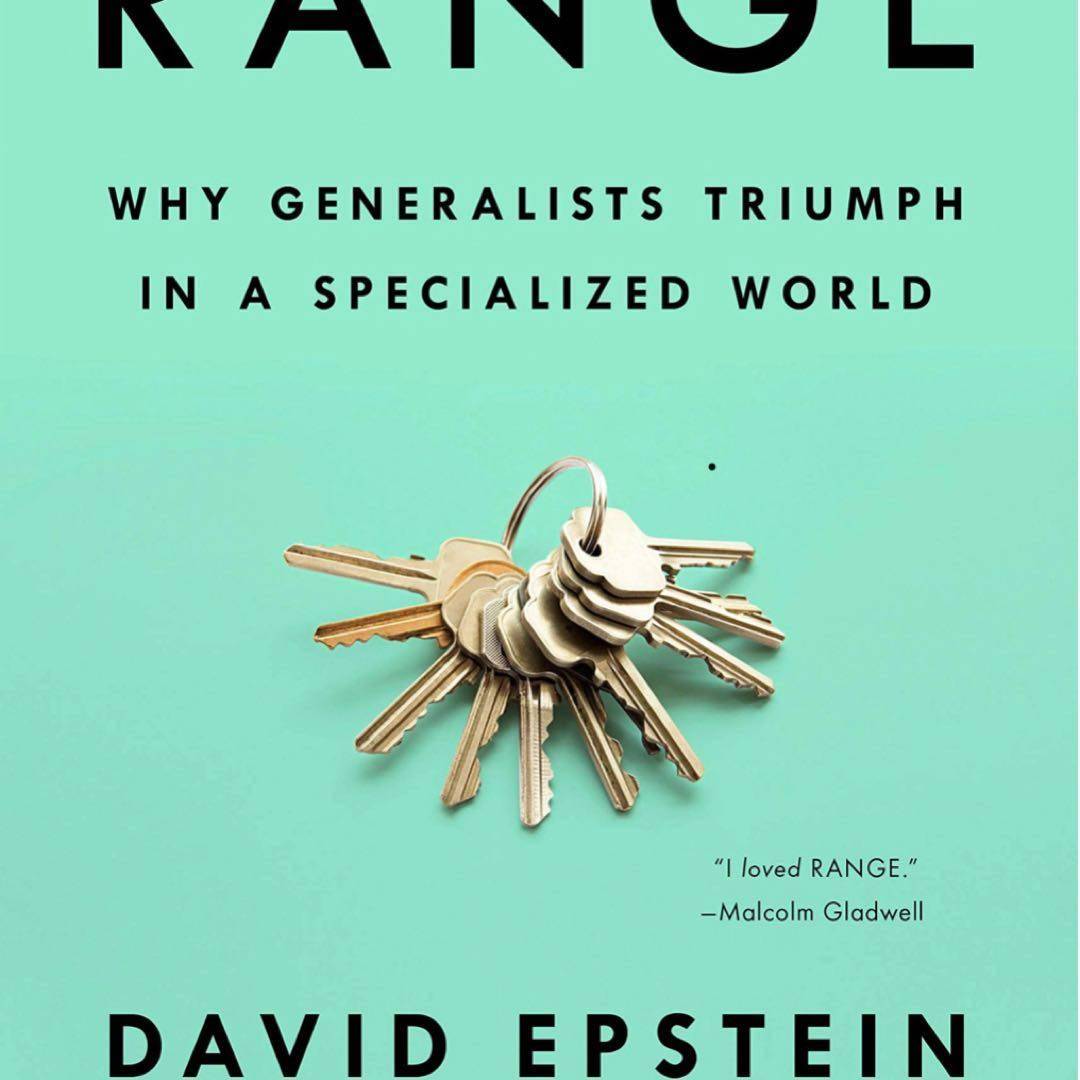
This is another review of a book about thinking but it‘s really wonderful. And a grand defense for broad, liberal arts education and experience even in this increasingly technological world. Highly, highly recommended.
This was very good and encouraged me to keep going with my nebulous plans to pursue further education. I feel a bit too specialized and want to try something new!
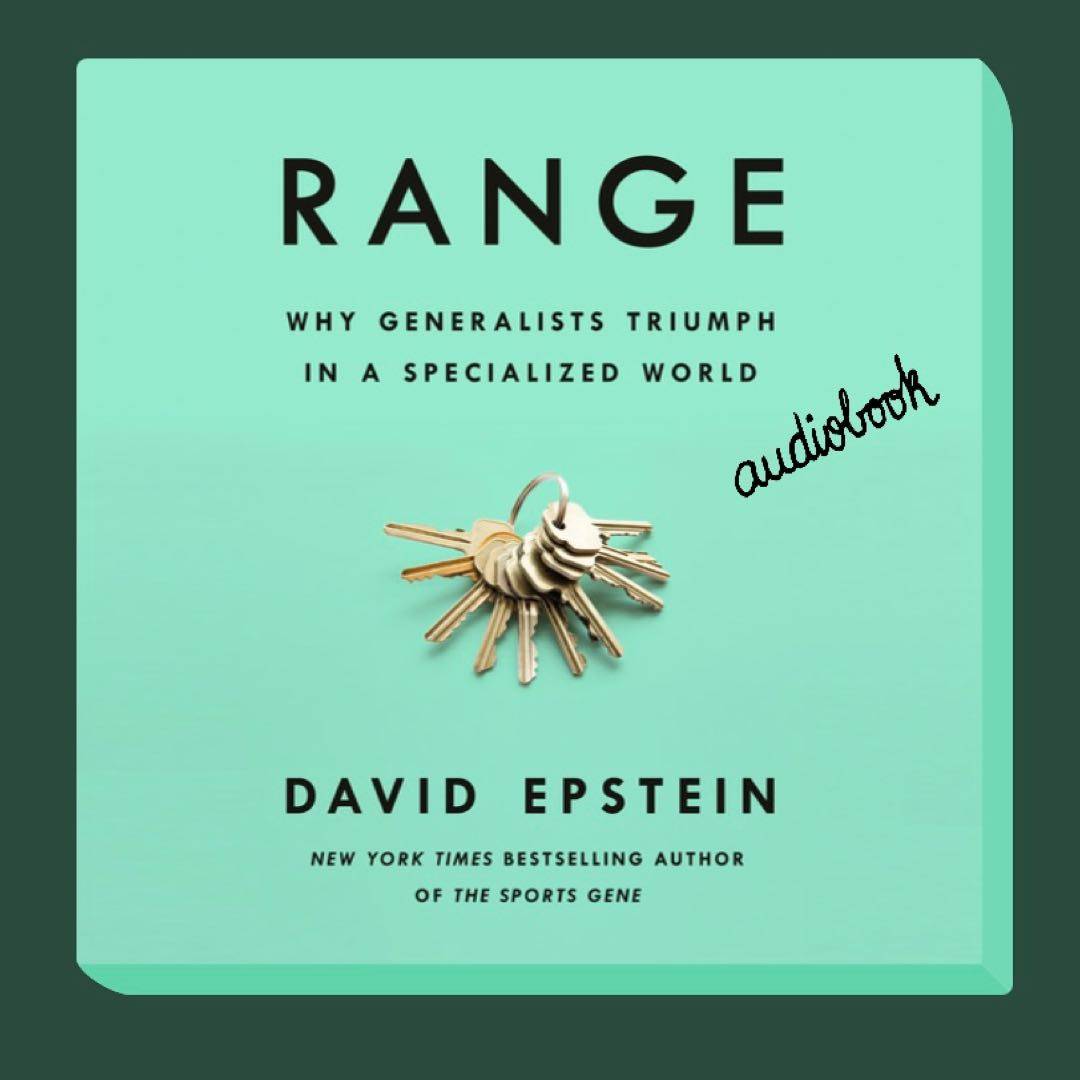
In Range, David Epstein makes the case that we are actually better served casting our net wide rather than super-specializing in a field. He uses real world examples of how super-specialization can lead to worse outcomes and dissatisfaction. I love social science books, and I really enjoyed this one. I definitely recommend it.
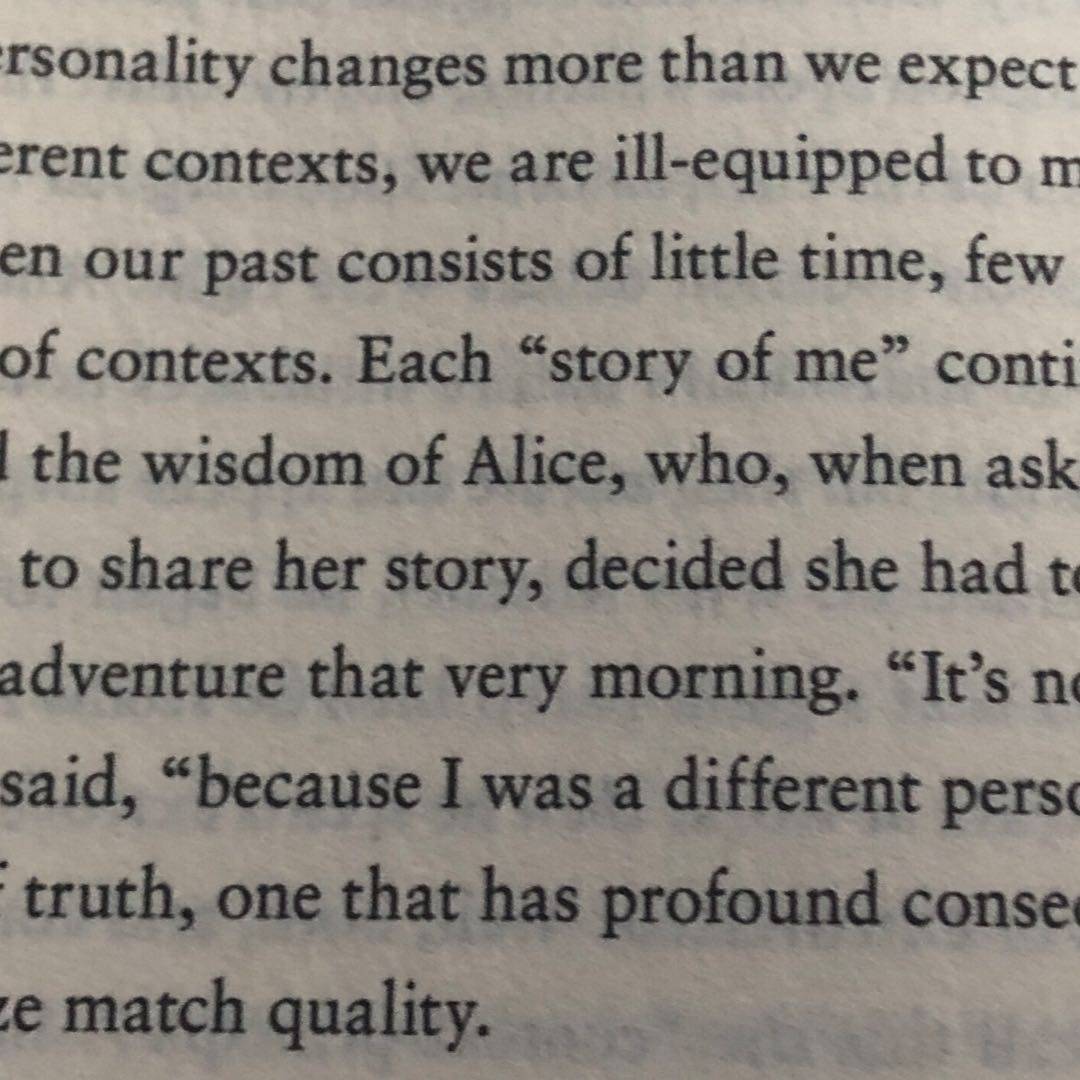
Wisdom from Alice! P 160. And then on the next page - we learn who we are only by living, and not before. P 163 as well, from Paul Graham, “instead of working back from a goal, work forward from promising situations”.
Like life, retrieval is about the journey. P 88
This was entertaining! A bit repetitive, but mostly a look at how having breadth of experience vs depth can help one become a better problem solver. Some of the case studies were really interesting.
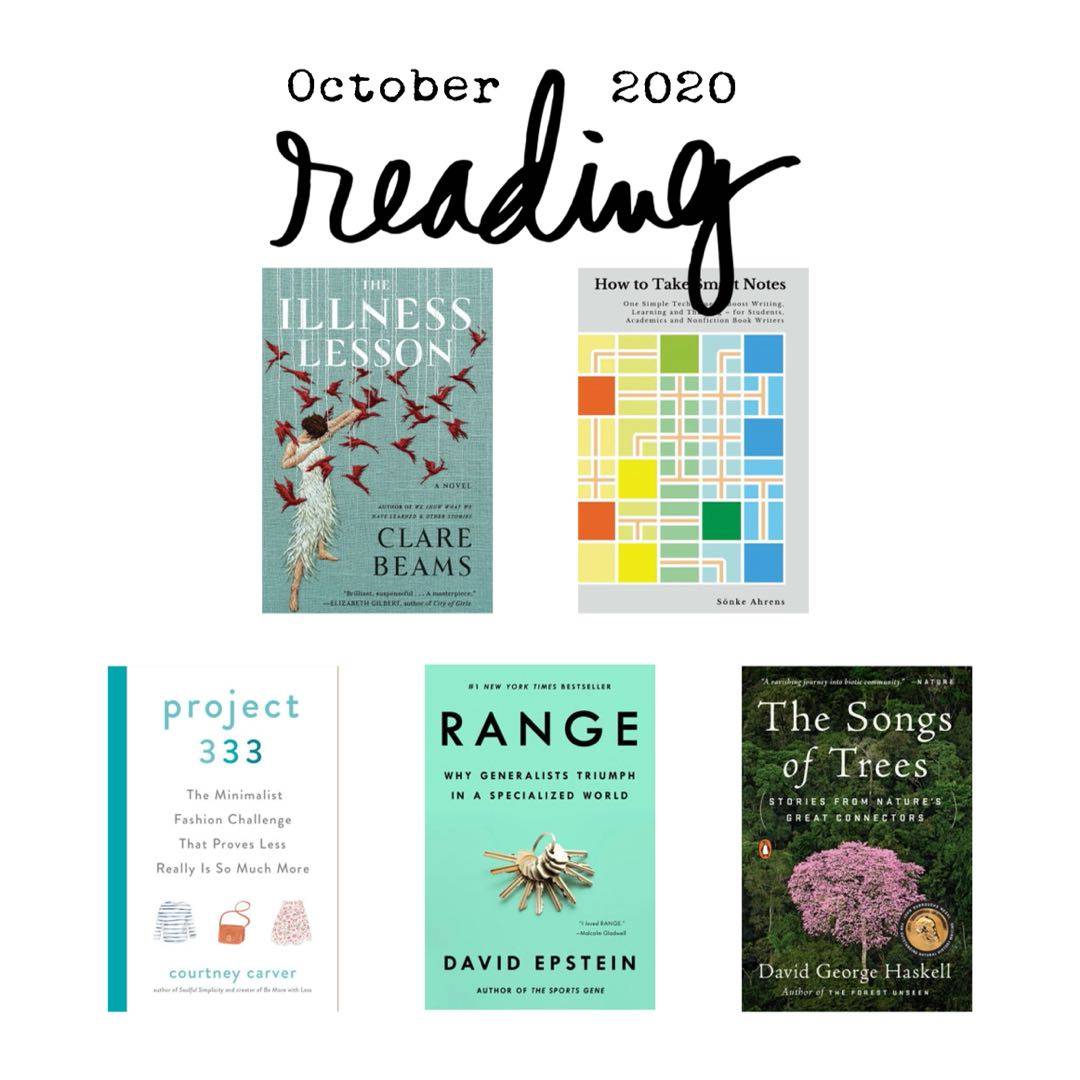
October was an excellent reading month! There were all top notch. And I met my Goodreads goal for the year 🎉
#octoberwrapup #octoberreads #monthlywrapup
“Research on aviation accidents, for example, found that “a common pattern was the crew's decision to continue with their original plan“ even when conditions changed dramatically.“
“Dropping familiar tools is particularly difficult for experience professionals who rely on what Weick called over learned behavior. That is, they have done the same thing in response to the same challenges over and over until the behavior has become so automatic that they no longer even recognize it as a situation-specific tool.“
“Being forced to generate answers improves subsequent learning even if the generated answer is wrong.“
“for learning that is both durable (it sticks) and flexible (it can be applied broadly), fast and easy is precisely the problem.“
Those who did not make a creative contribution to their field lacked aesthetic interests outside their narrow area...
Creative achievers tend to have broad interests.
Well researched book that encourages you to learn a lot and understand that the more you know, the more likely you are to be wrong about something that isn't identical to the things that you know. Interesting examples. Highly recommended for people who are struggling with the idea of having to "be" something - as in "what are you going to be when you grow up".
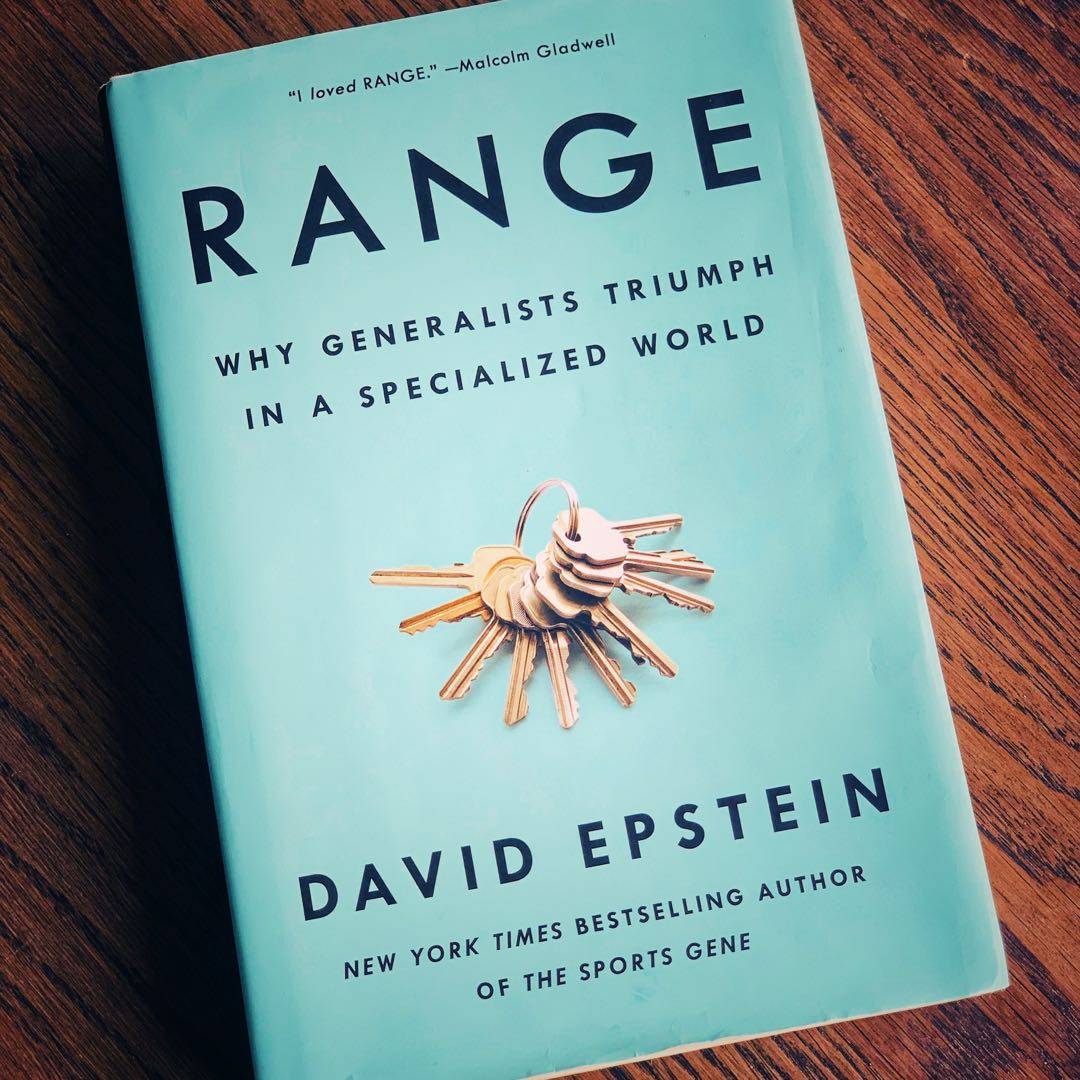
Range has a lot of interesting stories. Everything from jazz musicians vs classical musicians, Remainers and Brexiters, the history of Nintendo, science knowledge vs science curiosity, and stories about notable figures like Charles Darwin, Tiger Woods, and Roger Federer make for an interesting read. The writing style sometimes got bogged down in the details, but overall a good look at the pros and perils of specialists versus generalists.
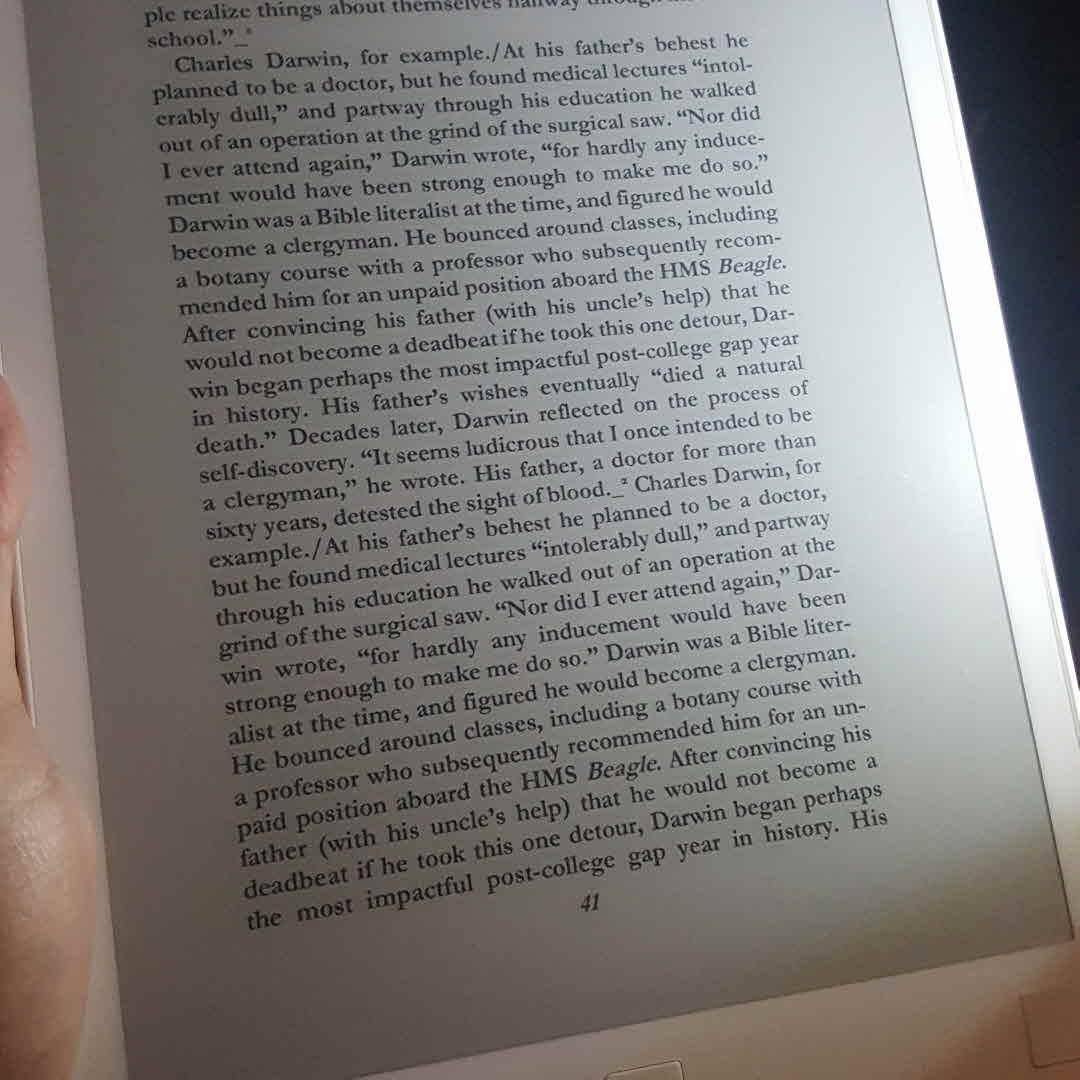
Ahora en el capítulo 7 de Range. Leyendo en el Remarkable.
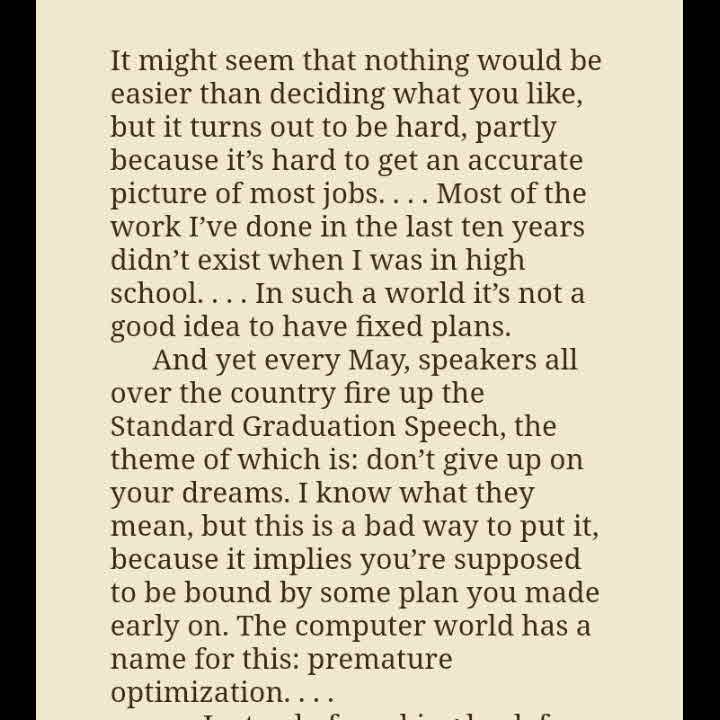
Paul Graham, computer scientist and cofounder of Y Combinator--the startup founder of Airbnb, Dropbox, Stripe, and Twitch--in a high school graduation speech he wrote but never delivered.
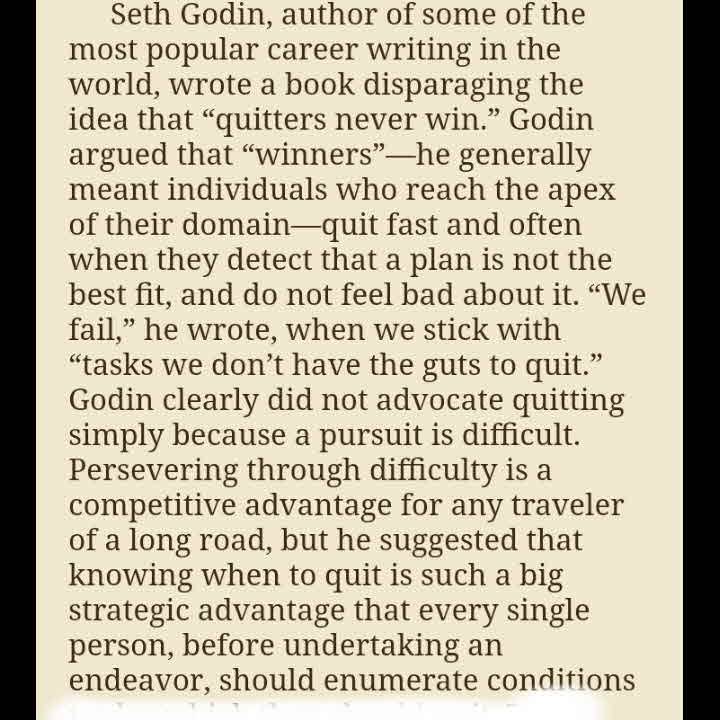
(Continued)...under which they should quit. The important trick, he said, is staying attuned to whether switching is simply a failure of perseverance, or astute recognition that better matches are available.
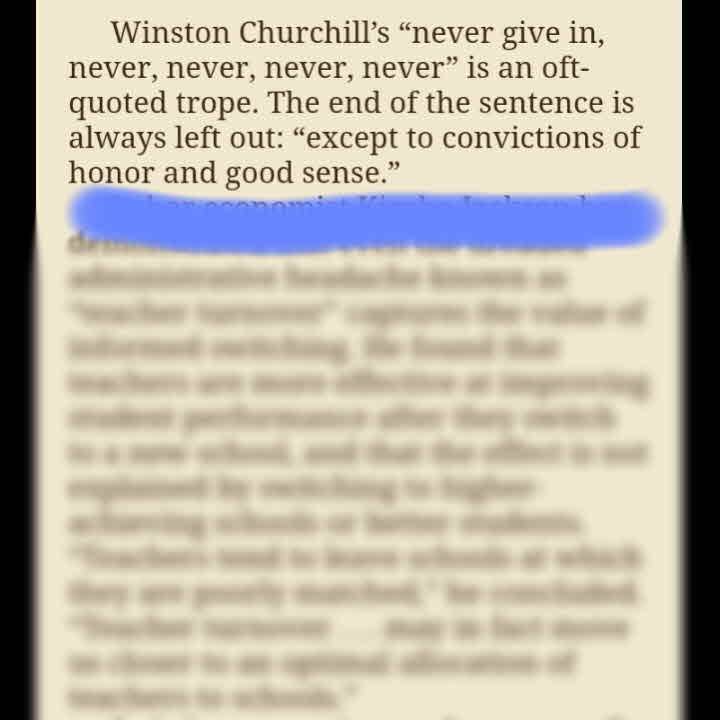
Of course it's left out. Anything that doesn't contribute to the ridiculous cult of positive thinking usually is.
Interesting read exploring the idea of how generalists can thrive in a world designed to promote specialization. The epitome of jack of all trades, but a master of none. Worth the read.
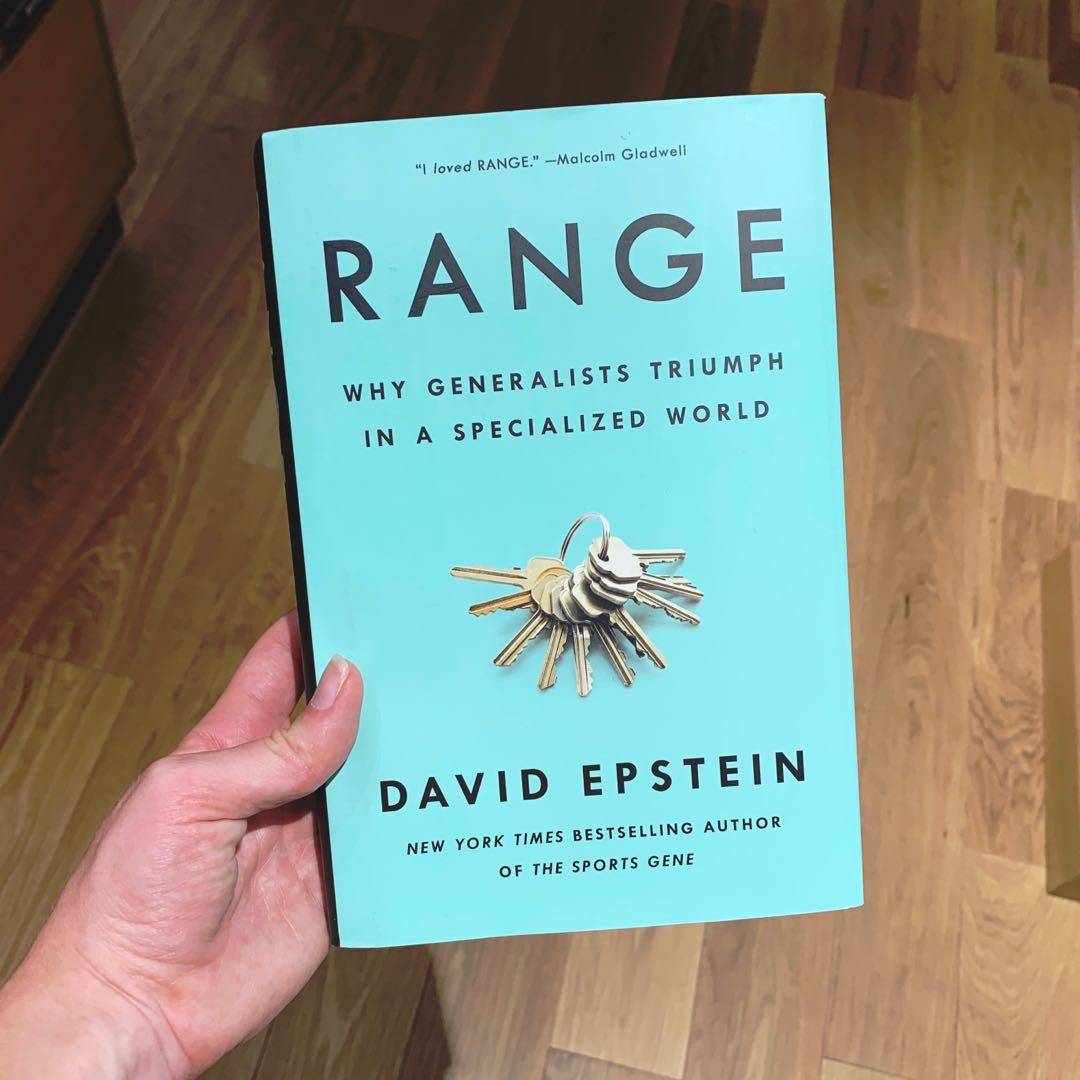
This was a slower read for me than I expected it to be, but overall I enjoyed most of it. Listened to it on audio, and not sure if I would have been better off in print 🤷🏻♀️
Meh, gave up after about 75 pgs. Wasn‘t holding my attention and I‘ve got other things I need to try to read
The author is writing against the idea that specialising as early as possible with deliberate practice in an attempt to get a head start is the best way to proceed.
He adduces examples from sports and games, music, engineering, science and the arts to show that sampling and experimenting till you find something that really fits you is much more productive and fruitful. 👇
“The Danish proverb that warns ‘It is difficult to make predictions, especially about the future,‘ was right.”
“There is a particular kind of thinker, one who becomes more entrenched in their single big idea about how the world works even in the face of contrary facts, whose predictions become worse, not better, as they amass information for their mental representation of the world.”
“The precise person you are now is fleeting, just like all the other people you‘ve been.”
I really enjoyed this book! So much information and so much to think about as we grow as people and as we bring up our children in today's chaotic world....
“Our greatest strength is the exact opposite of narrow specialization. It is the ability to integrate broadly.”
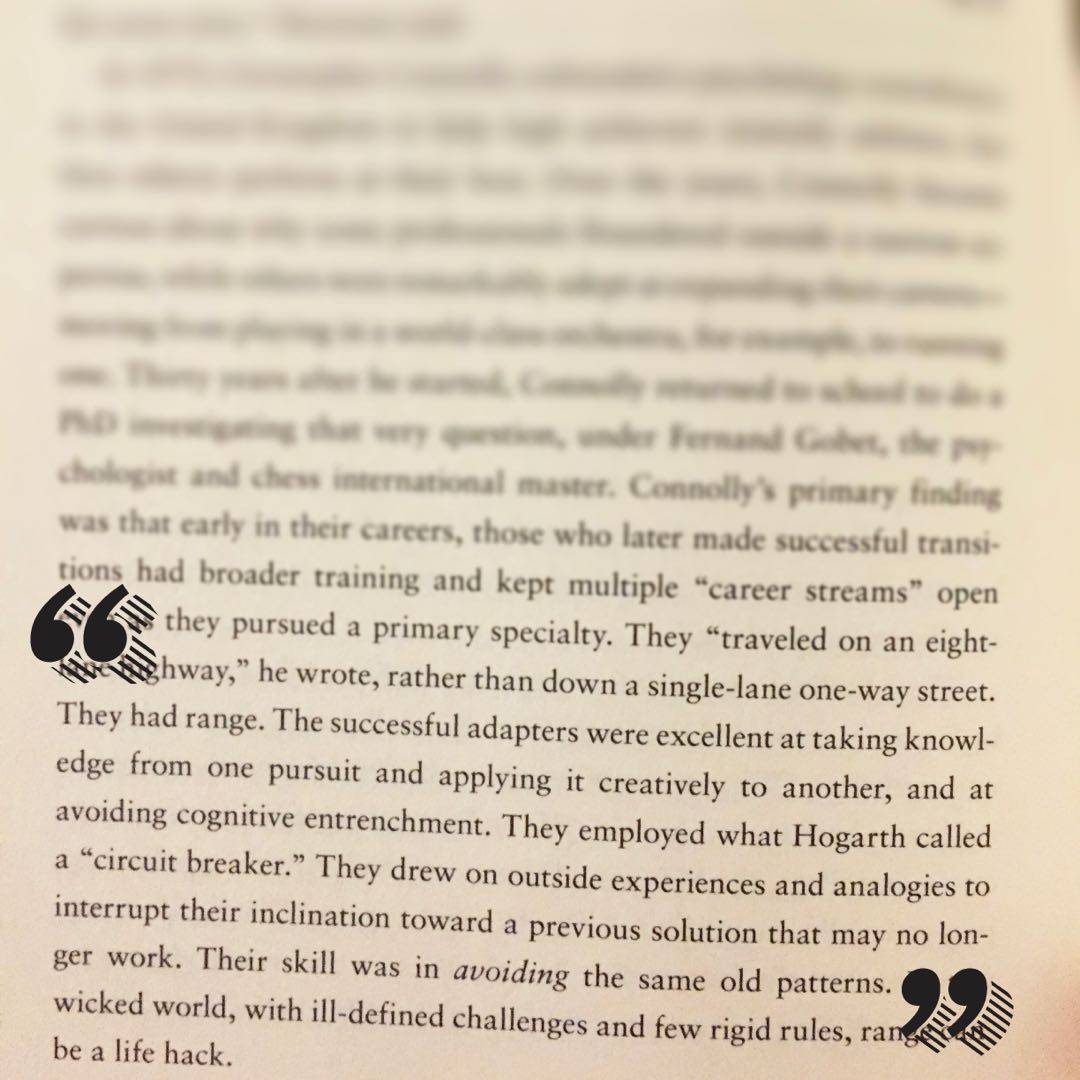
The successful adapters were excellent at taking knowledge from one pursuit and applying it creatively to another, and at avoiding cognitive entrenchment.
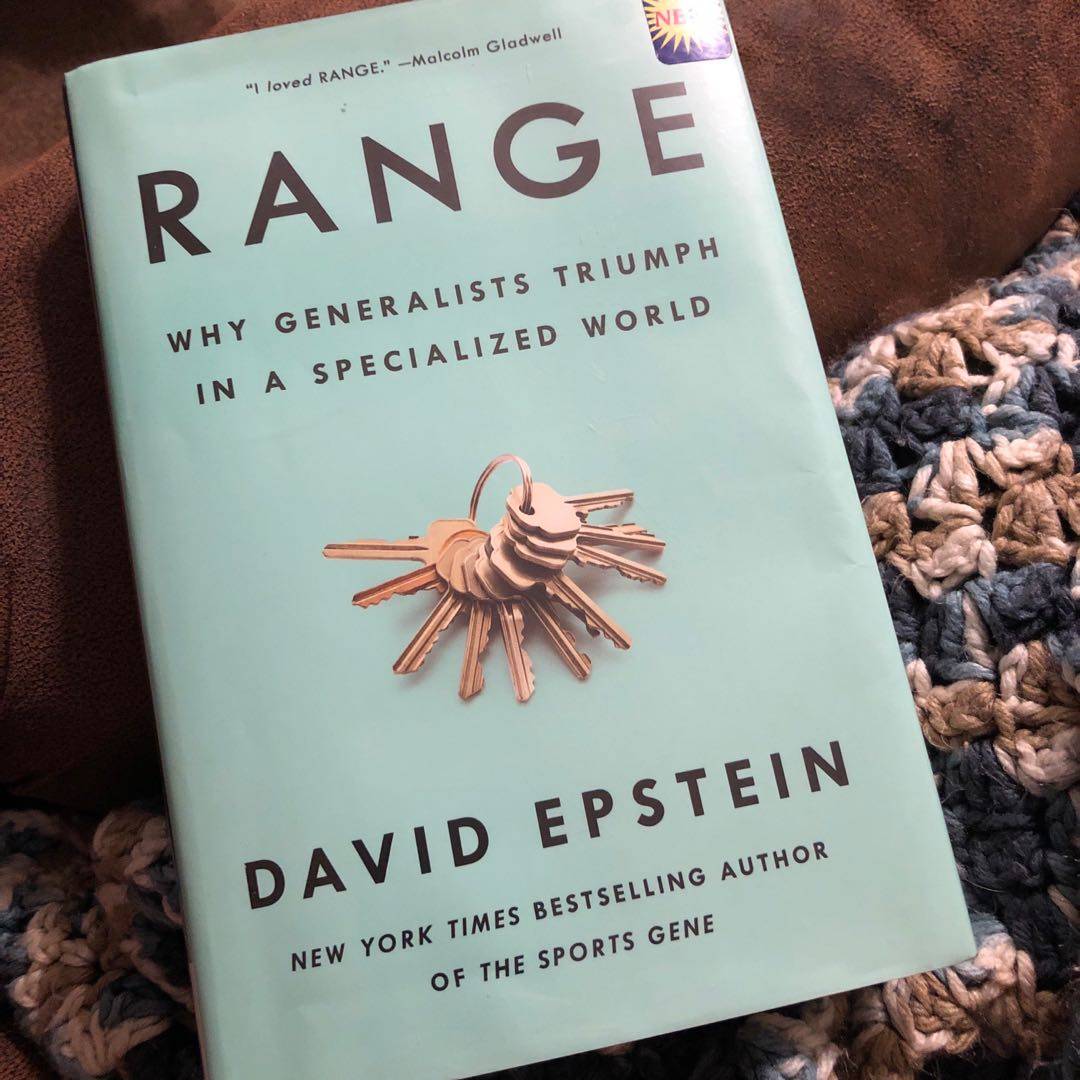
What. A. Book. Delightful and entertaining, Epstein makes his case and makes me want my own copy. This also makes me feel completely justified in learning something new...at any point.
students get what economist Bryan Caplan called narrow vocational training for jobs few of them will ever have. 3/4 of American college graduates go on to a career unrelated to their major—a trend that includes math and science majors—after having become competent only with the tools of a single discipline. One good tool is rarely enough in a complex, interconnected, rapidly changing world.
Learning stuff was less important than learning about oneself. Exploration is not just a whimsical luxury of education; it is a central benefit.
Like chess masters and firefighters, premodern villagers relied on things being the same tomorrow as yesterday. They were well prepared for what they had experienced before, and extremely poorly equipped for everything else. Their very thinking was highly specialized in a manner that the modern world has been telling us is increasingly obsolete. They were perfectly capable of learning from experience, but failed at learning without experience.
You have people walking around with all the knowledge of humanity on their phone, but they have no idea how to integrate it. We don‘t train people in thinking or reasoning.
The challenge we all face is how to maintain the benefits of breadth, diverse experience, interdisciplinary thinking, and delayed concentration in a world that increasingly incentivizes, even demands, hyperspecialization
The labs in which scientists had more diverse professional backgrounds were the ones where more and more varied analogies were offered, and where breakthroughs were more reliably produced when the unexpected arose.
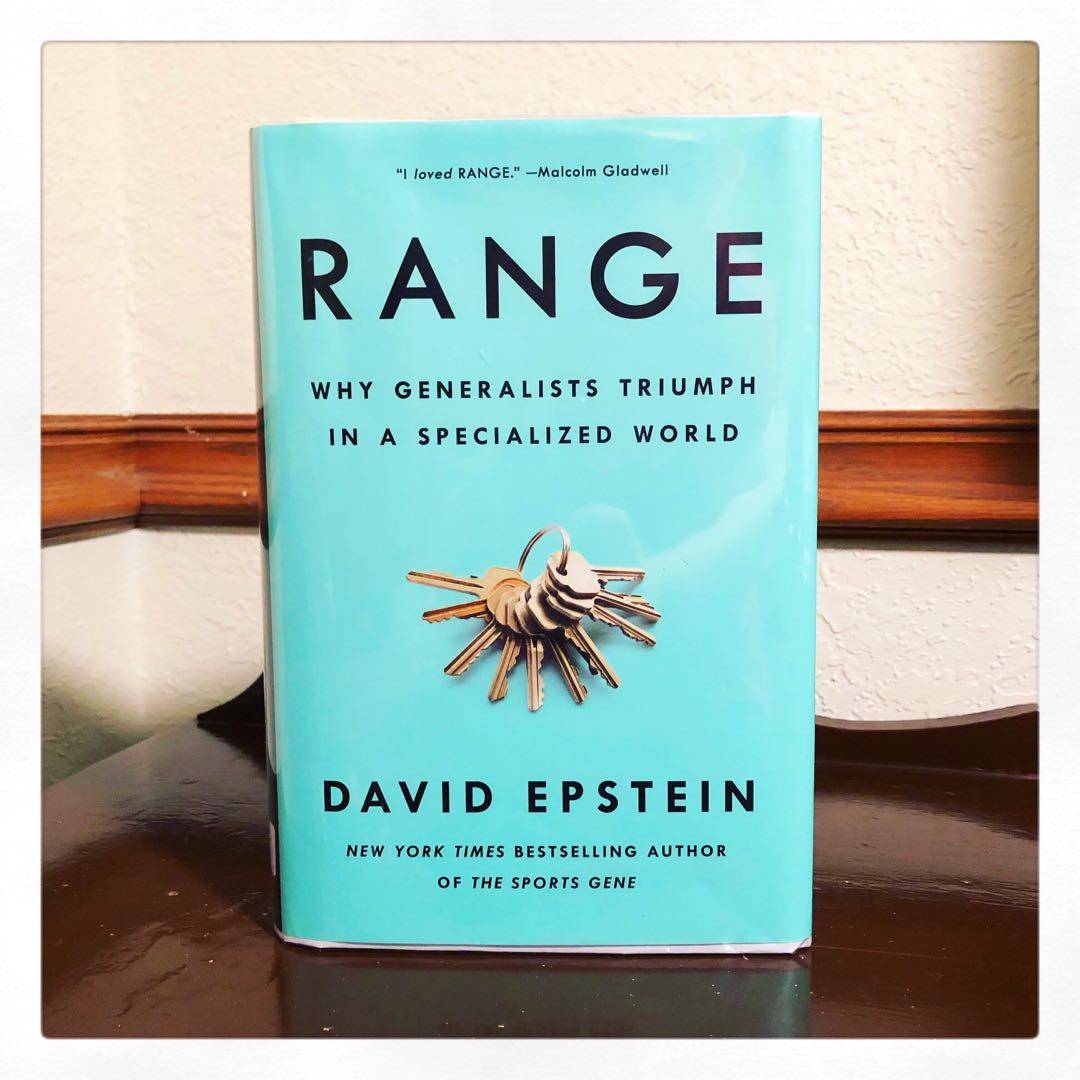
Reading this helped me to realize that maybe being a singular expert on one thing isn't always necessary. That a wide range of skills and interests helps you to make connections across disciplines and topics which helps to creatively solve problems. Lots of great info in here (parents with young children may also benefit from reading this) and it helped to restore a bit of faith in myself which has been sorely lacking as of late.
Loved this book! If you're looking for a great non-fiction read, I recommend this one. So many great anecdotes to prove his point and it reads smoothly.
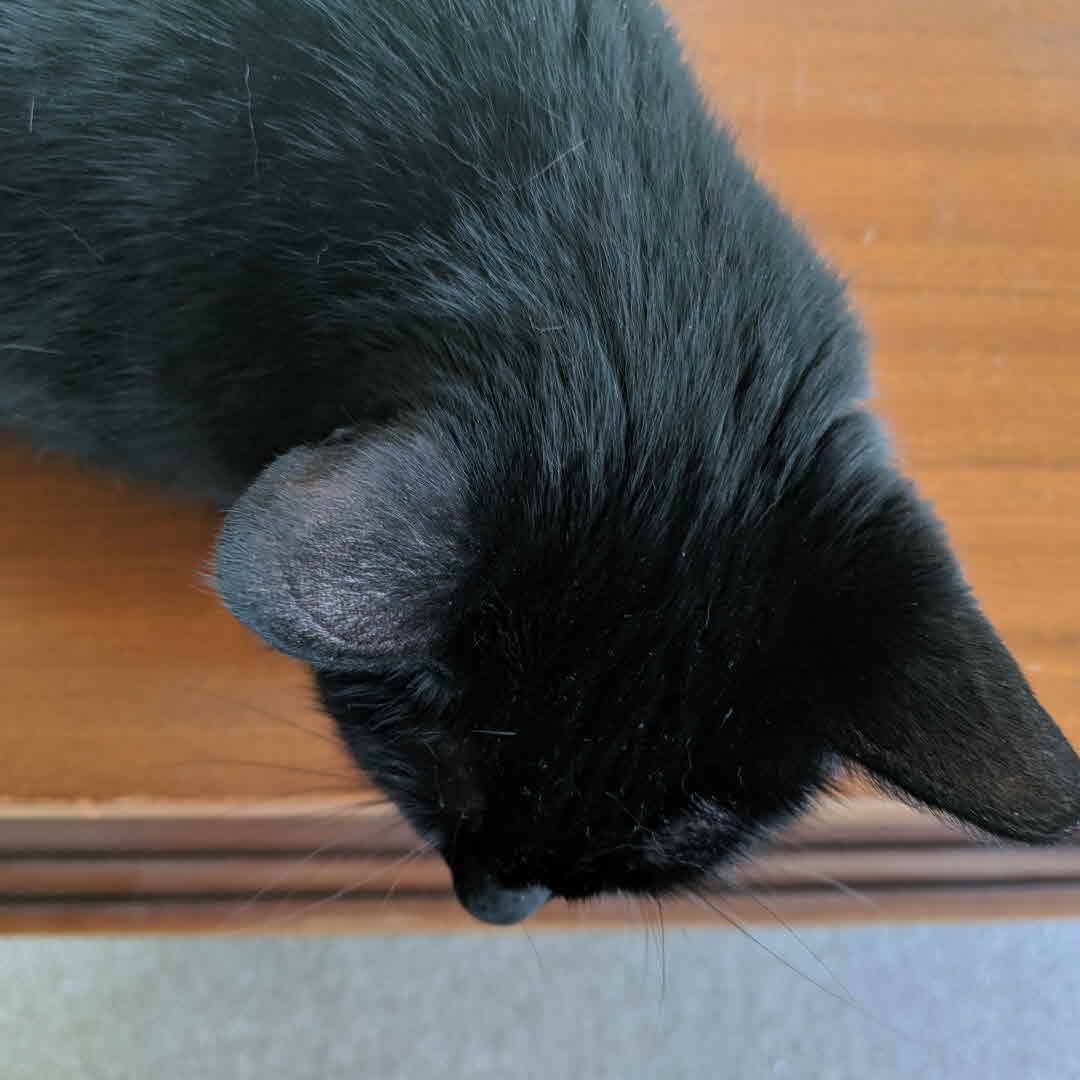
Really love the findings in this book (and so great to see science confirm that how ive been living is better off in the long term)
It's so close to a Pick, but I found myself skimming through all the examples. Heavily researched. You'll have tons to talk about with friends.
#internationalcatday Happy intl cat day to Zucchini, my dear little buddy.

"To better understand your strengths, weaknesses, and interests, you actually have to try stuff."
2nd of 3 hikes for the week.#bfc #bfcr3 Nice views back down to home. #bookdragons #dogsoflitsy #wasabi
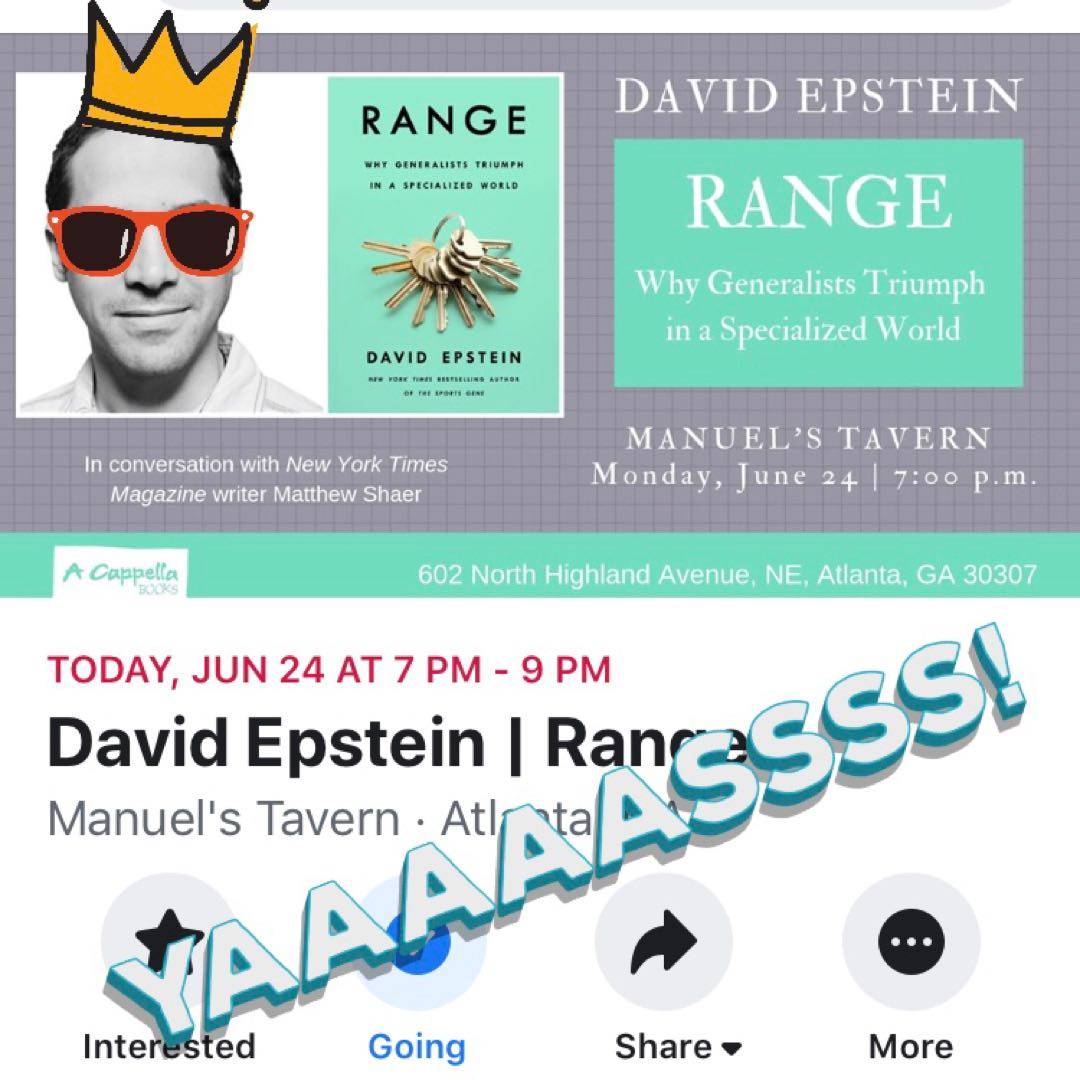
Saw David Epstein tonight. Immediately came home and copied his twitter following list.
Great book talk with a guest appearance by a guy he talked about in the book. It was great!
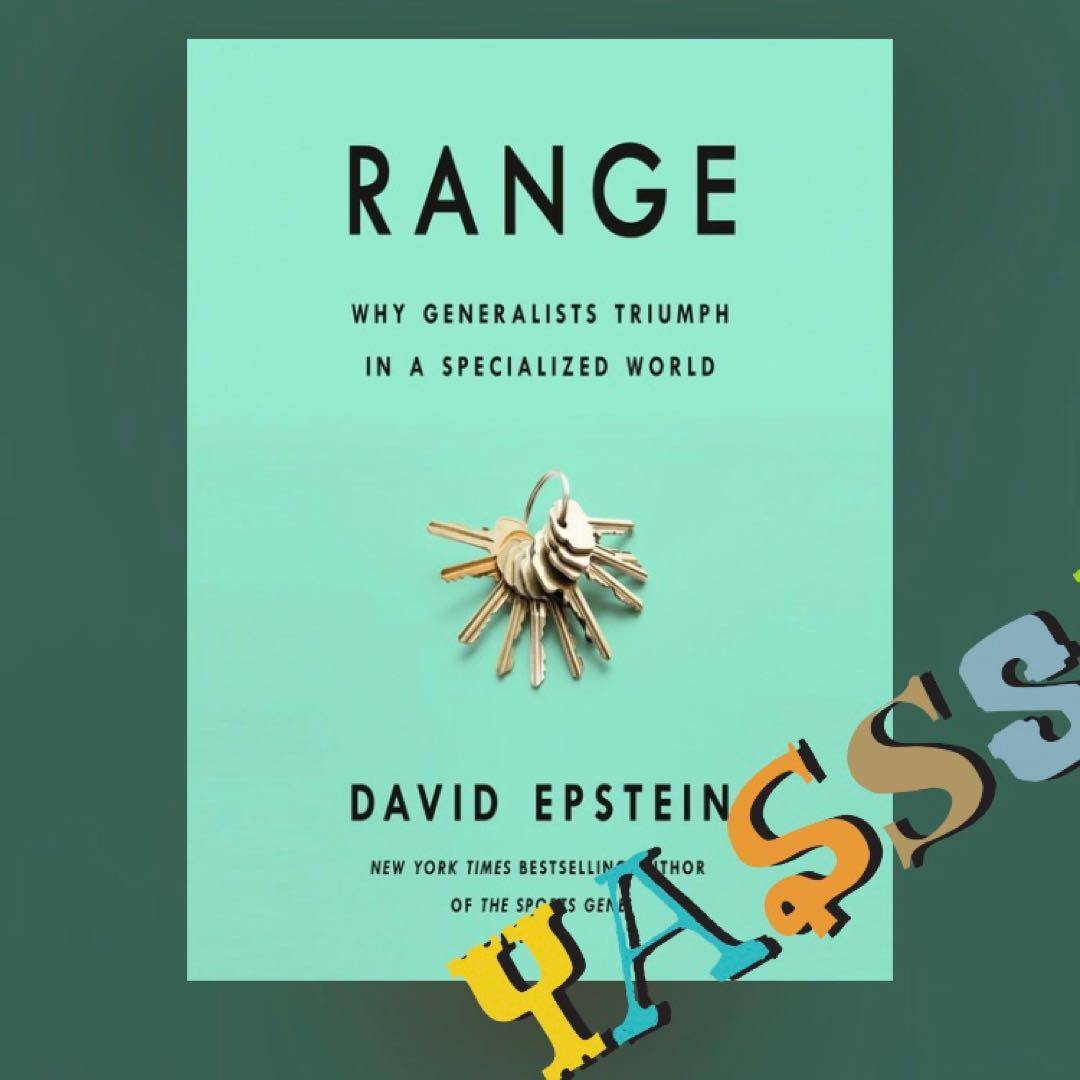
Great audiobook. For fans of Malcolm Gladwell and Daniel Pink. The complete opposite advice from the 10,000 hour rule with scientific backing. Loved it!!!! #audiobook